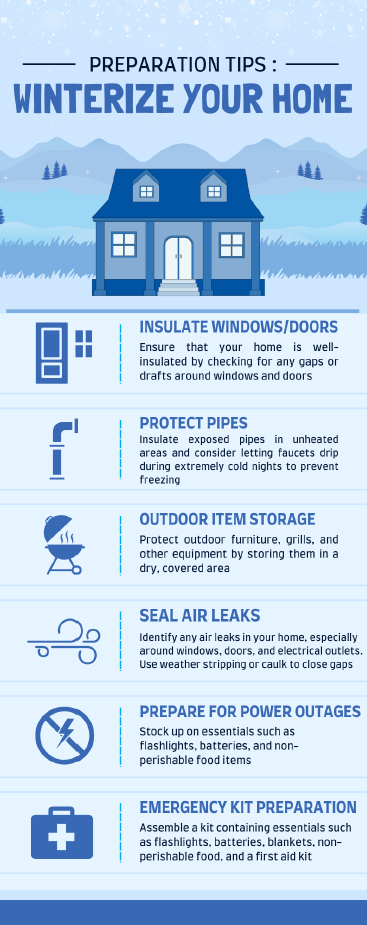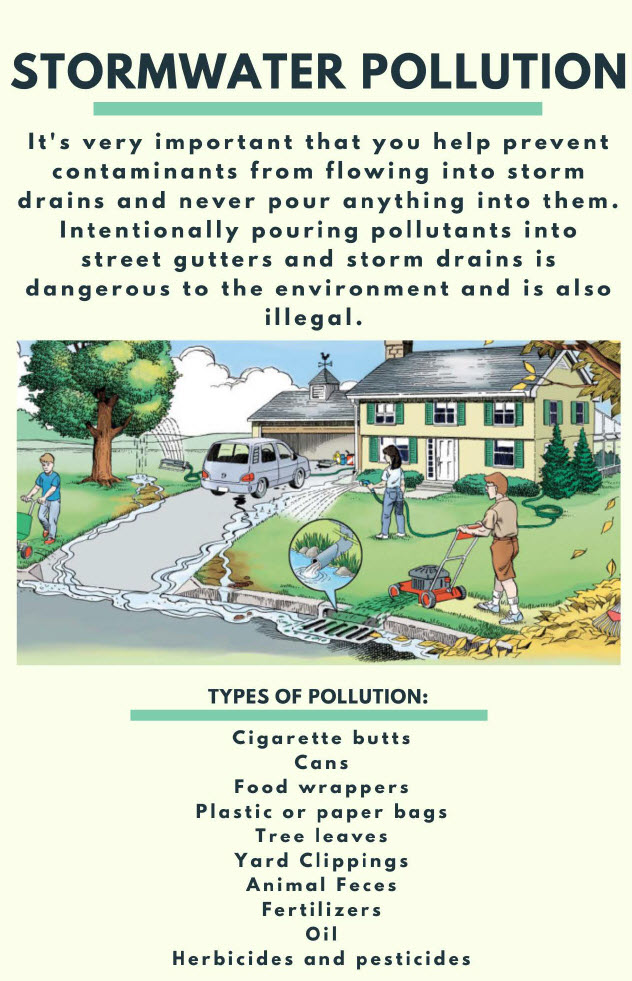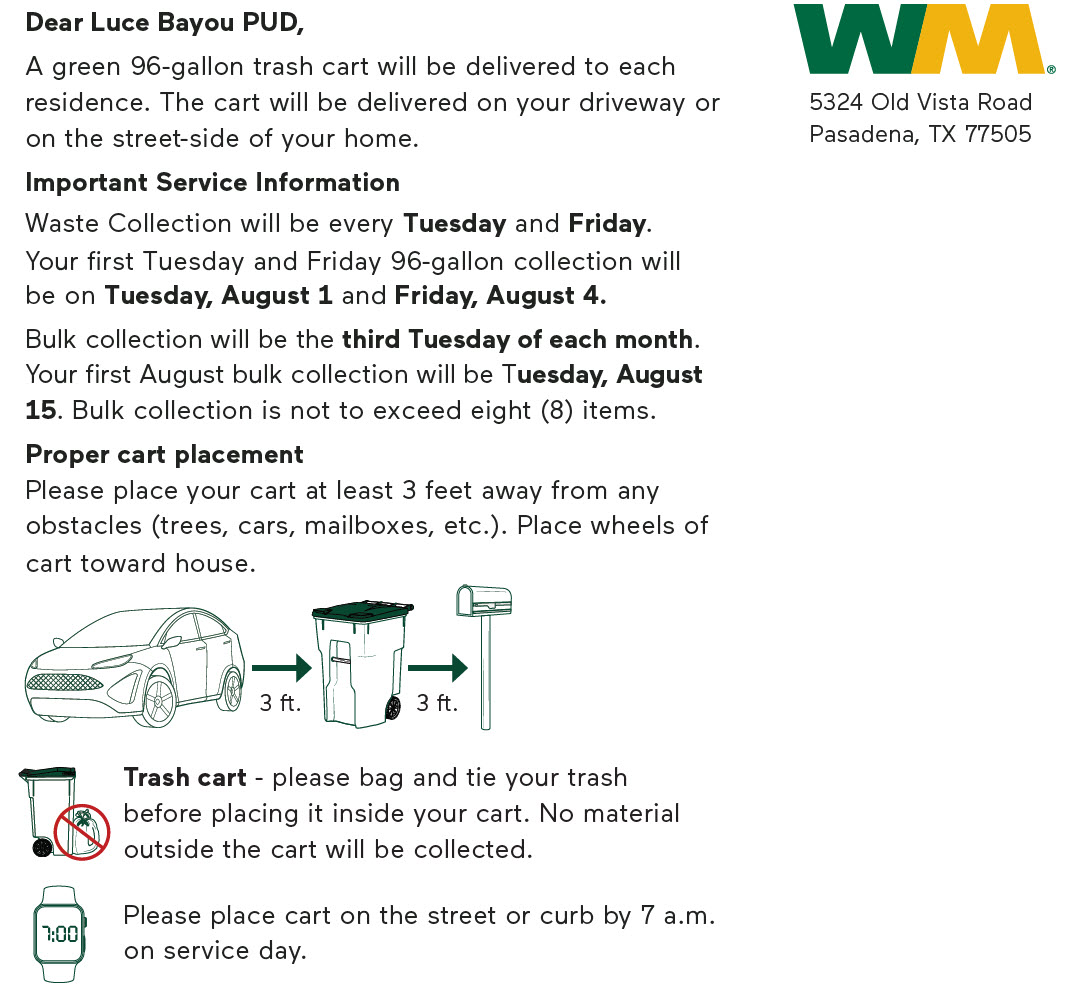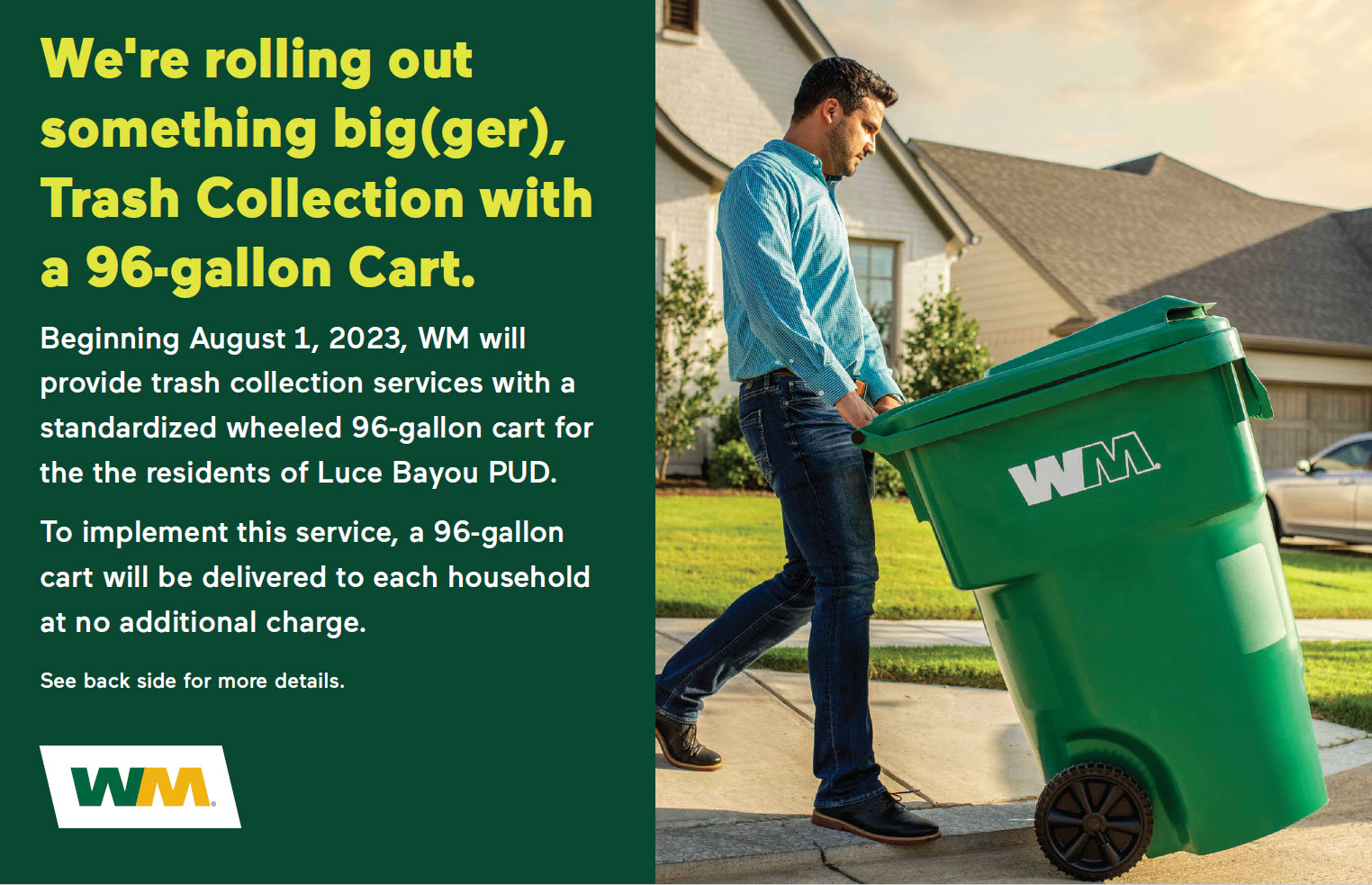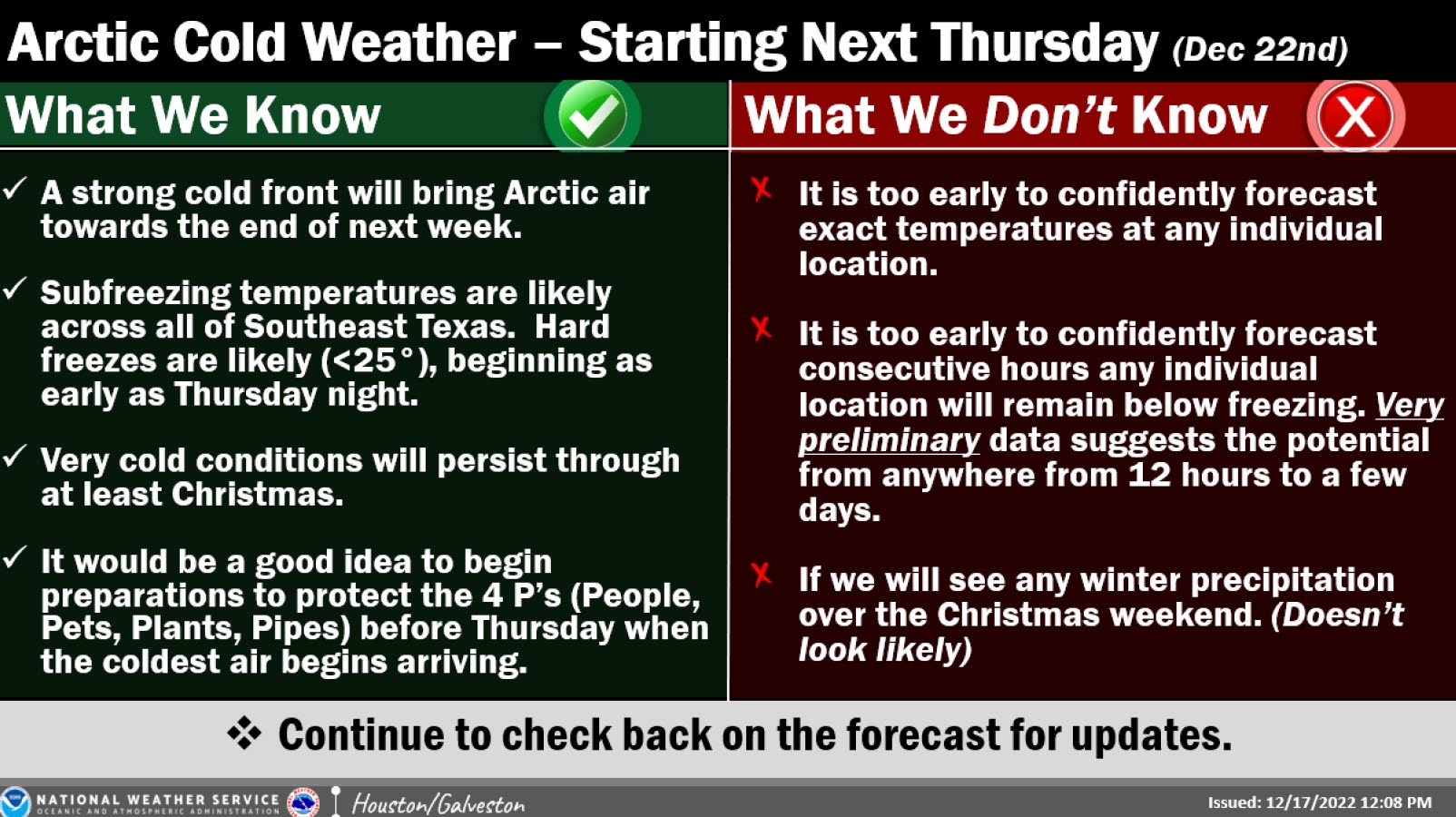
Dear Luce Bayou PUD Resident:
Beginning August 1, 2023, WM is moving to standardized trash cart collection in the Luce Bayou PUD community. Collection with a standardized 96-gallon cart is more efficient and cleaner for your community.
As part of this transition, a green 96-gallon trash cart will be delivered to each residence. The cart will be delivered on your driveway or on the street-side of your home.
With standardized collection, all material must fit inside the cart with the lid closed. No extra bags or material outside the cart will be collected. Items that are oversized and do not fit into your cart will be collected on your bulk collection day.
Waste Collection Days
- Waste Collection will be every Tuesday and Friday. Your first Tuesday and Friday 96-gallon trash collection will be on Tuesday, August 1 and Friday, August 4.
Bulk Collection Days
- Bulk collection will be the third Tuesday of each month. Your first August bulk collection will be Tuesday, August 15. Bulk collection is not to exceed eight (8) items.
You may place out eight (8) items for collection. Acceptable items include broken down and bundled moving boxes, old furniture, bagged grass clippings, leaves, branches, and tree trimmings. Branches and tree trimmings should be tied and bundled and no more than three inches (3″) in diameter and four feet (4′) in length and weigh no more than forty to fifty (40- 50) pounds.
Cart Placement
- Please have your cart at the curb for collection by 7 a.m. each service day.
- Please place your cart at least three feet from all objects, including your mailbox, car or Place the wheels of the cart toward the house.
Service Holidays
WM observes the following holidays: New Year’s Day, Thanksgiving Day, Christmas Day. Service will be delayed by one day if collection falls on or follows one of these observed holidays.
Please do not hesitate to call us at (800) 800-5804 Monday-Friday 8 a.m. to 5 p.m. or email us at cssatex@wm.com if you have questions regarding your service.
Thank you for entrusting WM to serve your community’s collection and disposal needs. It is an honor to serve your community.
Sincerely, WM of Texas

